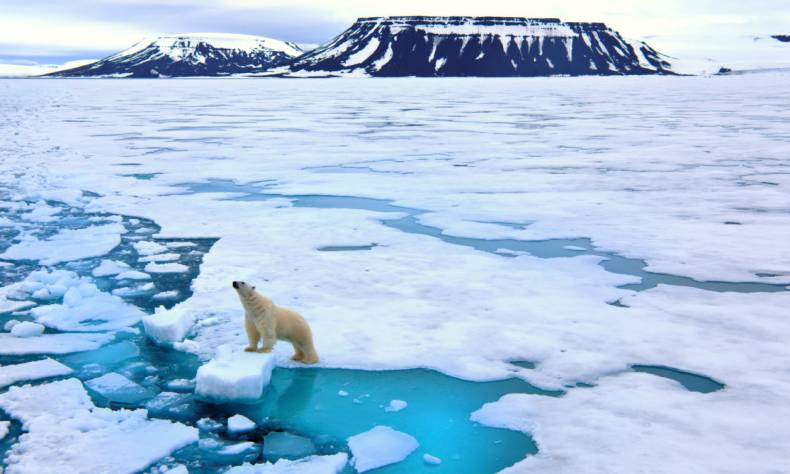
China Publishes Arctic Policy, Eyeing Vision of “Polar Silk Road”
China published a white paper on its Arctic policy Friday, pledging cooperative governance and elaborating a vision of “Polar Silk Road”.
China published a white paper on its Arctic policy Friday, pledging cooperative governance and elaborating a vision of “Polar Silk Road”.
“China, as a responsible major country, is ready to cooperate with all relevant parties to seize the historic opportunity in the development of the Arctic, to address the challenges brought by the changes in the region,” said the white paper issued by the State Council Information Office.
The country would like to “jointly understand, protect, develop and participate in the governance of the Arctic, and advance Arctic-related cooperation under the Belt and Road Initiative,” according to the report.
The Silk Road Economic Belt and the 21st-century Maritime Silk Road (Belt and Road Initiative), an important cooperation initiative of China, will bring opportunities for parties concerned to jointly build a “Polar Silk Road,” and facilitate connectivity and sustainable economic and social development of the Arctic, according to the white paper.
China vowed to participate in Arctic affairs in accordance with the basic principles of “respect, cooperation, win-win result and sustainability.”
“While pursuing its own interests, China will pay due regard to the interests of other countries and the broader international community,” it said.
“Respect” is the key basis for China’s participation in Arctic affairs.Respect should be reciprocal. It means all States should abide by international treaties such as the UN Charter and the UNCLOS, as well as general international law, it said.
They should respect the sovereignty, sovereign rights, and jurisdiction enjoyed by the Arctic States in this region, respect the tradition and culture of the indigenous peoples, as well as respect the rights and freedom of non-Arctic States to carry out activities in this region in accordance with the law, and respect the overall interests of the international community in the Arctic, it noted.
The paper said that “cooperation” is an effective means for China’s participation in Arctic affairs. It means establishing a relationship of multi-level, omni-dimensional and wide-ranging cooperation in this area. All stakeholders are encouraged to take part in cooperation on climate change, scientific research, environmental protection, shipping route development, resource utilization and cultural activities.
“Win-win result” is the value pursuit of China’s participation in Arctic affairs. It means all stakeholders in this area should pursue mutual benefit and common progress in all fields of activities, it said.
“Sustainability” is the fundamental goal of China’s participation in Arctic affairs. This means promoting the sustainable development of the Arctic by ensuring the sustainability of environmental protection, resource utilization and human activities in the area, according to the white paper.
It also means realizing harmonious coexistence between man and nature, better coordination between ecological protection, economic growth and social progress, better balance between utilization, management and protection, and intergenerational equity, it added.
Being committed to the existing framework of international law and rules, China would like to build and maintain “a just, reasonable and well-organized Arctic governance system.”
China will also regulate and manage Arctic-related affairs and activities within its jurisdiction in accordance with the law, steadily enhance its ability to understand, protect and develop the Arctic, and actively participate in international cooperation in Arctic affairs.
The land territories in the Arctic cover an area of about 8 million square kilometers, involving Canada, Denmark, Finland, Iceland, Norway, Russia, Sweden and the United States, while the Arctic Ocean has an area of more than 12 million square kilometers, in which coastal States and other States share maritime rights and interests according to international law.
Source: Xinhua
 Facebook
Facebook
 Twitter
Twitter
 Linkedin
Linkedin
 Google +
Google +



